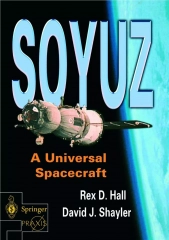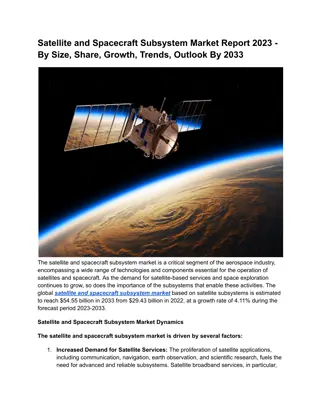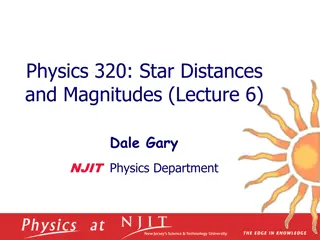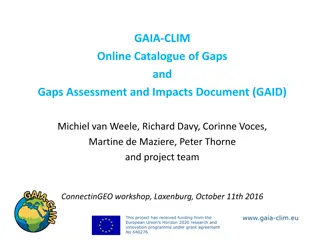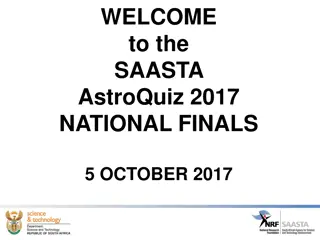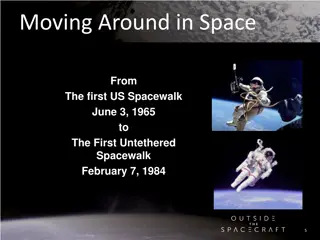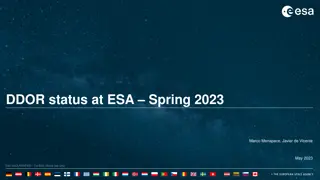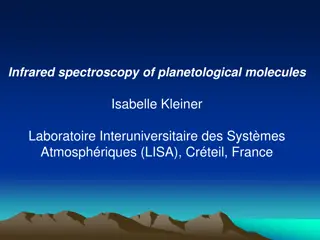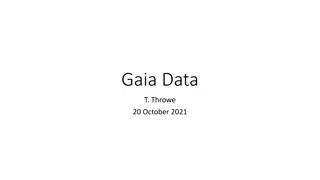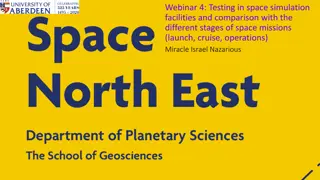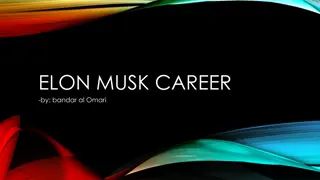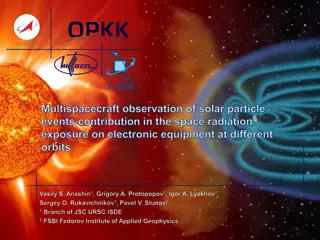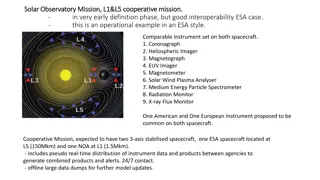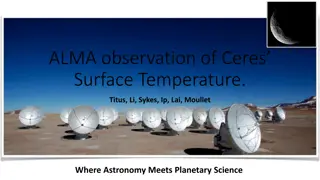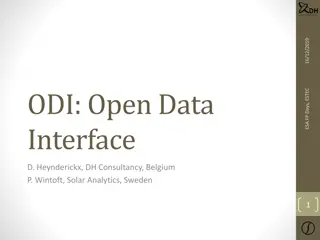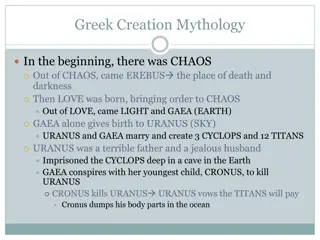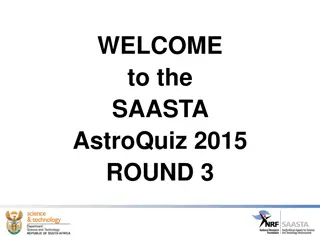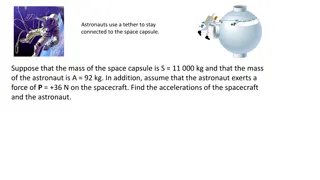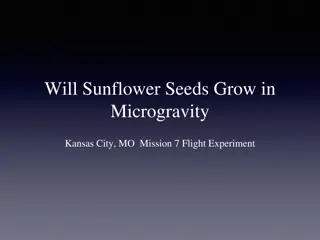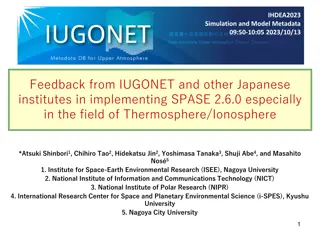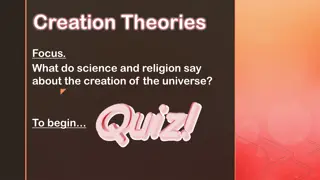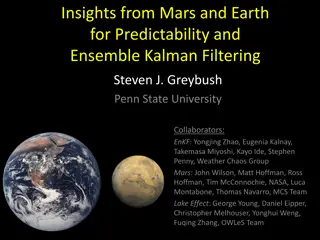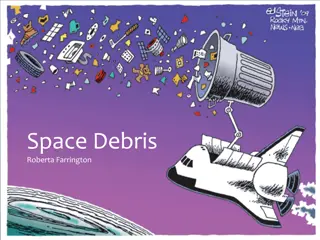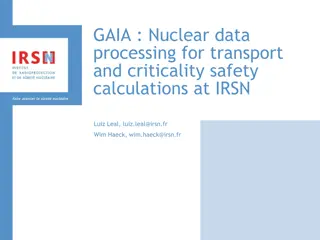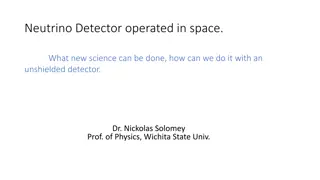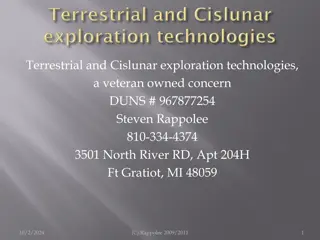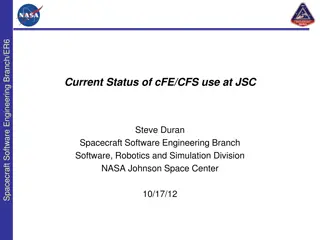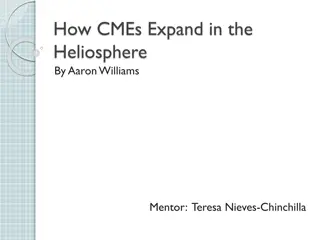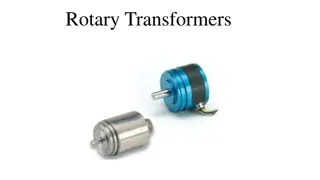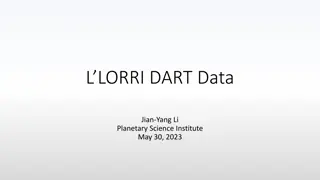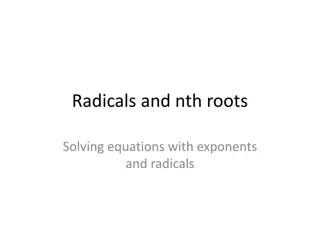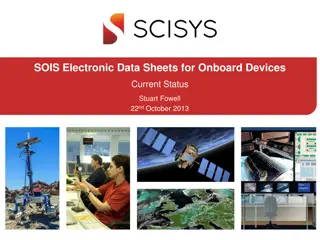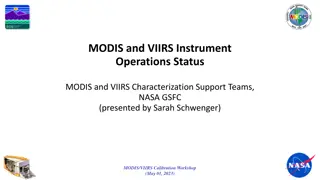$PDF$/READ Soyuz: A Universal Spacecraft (Springer Praxis Books)
\"COPY LINK HERE ; https:\/\/getpdf.readbooks.link\/1852336579\n\nPDF\/READ Soyuz: A Universal Spacecraft (Springer Praxis Books) | Soyuz: A Universal Spacecraft (Springer Praxis Books)\n\"\n
1 views • 6 slides
Advanced Data Handling Architecture (ADHA): Status, Current Activities and Industrial Road Map
The Advanced Data Handling Architecture (ADHA) program aims to deliver a new generation of Platform and Payload Data Handling units by 2025, utilizing standardized, interoperable modules from various suppliers. The program targets significant improvements in spacecraft development time, cost efficie
0 views • 18 slides
Master Your Smartphone GPS and Mapping Apps for Effortless Navigation
Unlock the true potential of your smartphone GPS with this comprehensive guide on navigation and mapping apps. Learn how to never get lost again, whether you're driving, hiking, or exploring off-road. Discover a range of apps for different activities, from vehicle navigation to sharing locations and
4 views • 14 slides
CYGNSS Earth Venture Mission Overview
The CYGNSS Earth Venture Mission involves eight satellites in low Earth orbit designed to measure near-surface wind speed over oceans and map soil moisture and inland water under vegetation on land. Launched in December 2016, the mission has been successful, currently in its extended phase with seve
2 views • 9 slides
Satellite and Spacecraft Subsystem Market Size, Share, Growth, Trends, Outlook By 2033
The global satellite and spacecraft subsystem market based on satellite subsystem is estimated to reach $54.55 billion in 2033 from $29.43 billion in 2022, at a growth rate of 4.11% during the forecast period 2023-2033.\nRead Report Overview: \/\/bisresearch.com\/industry-report\/satellite-spacecraf
1 views • 3 slides
Understanding Stellar Distances and Brightness in Astronomy
Exploring the methods used in astronomy to determine star distances, from stellar parallax to advanced measurements with spacecraft like Gaia. Delve into the magnitude scale and the concept of apparent magnitude in measuring star brightness.
3 views • 13 slides
GAIA-CLIM Online Catalogue of Gaps: Identification, Assessment, and Impacts
The GAIA-CLIM project focuses on identifying, assessing, and addressing gaps in climate data. Through a collaborative approach involving project members, user workshops, and a living document, the project aims to categorize gap types, interact with gap owners, and formulate SMART actions for remedyi
1 views • 21 slides
SAASTA AstroQuiz 2017 National Finals - Test Your Astronomy Knowledge!
Dive into the SAASTA AstroQuiz 2017 National Finals where participants are challenged with intriguing questions about space, stars, and telescopes. Stay silent, think fast, and answer correctly to win prizes and glory! Explore topics ranging from satellites to spacecraft missions as you unravel the
0 views • 41 slides
European Deep Space Surveillance and Tracking Collaboration
EU Space Surveillance and Tracking program involves five European nations collaborating to assess and reduce risks to European spacecraft, provide early warnings for re-entries and space debris, and prevent space debris proliferation. Available deep space sensors, such as optical telescopes, are uti
1 views • 8 slides
A Journey Through Space: From the First US Spacewalk to the First Untethered Spacewalk
Explore the historic milestones in space exploration from the first US spacewalk in 1965 to the first untethered spacewalk in 1984. Witness astronauts like Ed White, Jim McDivitt, McCandless, and Stewart as they ventured into the void using innovative technologies such as the Hand-Held Maneuvering U
0 views • 7 slides
Current ESA Activities and DDOR Status Updates for Spring 2023
ESA provides updates on current activities including GAIA, BepiColombo, Solar Orbiter, JUICE, PN DOR Correlator software testing, Lunar Flashlight validation, and TTCP upgrades. The DDOR status at ESA for Spring 2023 involves operational supports in 4Q2023. Additionally, insights on ESA-JAXA cross-s
0 views • 10 slides
Insights into Infrared Spectroscopy of Planetary Molecules and Space Exploration
Infrared spectroscopy plays a crucial role in studying planetary molecules like NH3, PH3, and CH3CN, aiding in planetary observations and spacecraft missions. Ground-based observatories and spacecraft like GALILEO and Cassini/Huygens provide valuable data for analyzing planetary spectra and modeling
0 views • 13 slides
Innovative Business Plan for Terrestrial and Cislunar Exploration Technologies
Pioneering a unique approach using mass-manufactured NEO Scout CubeSats for space science data sales, this business plan involves various component manufacturers contributing sets of components for spacecraft manufacturing alongside import-export bank financing. The proposal includes valuable items
0 views • 9 slides
Understanding Gaia Data Releases and Utilizing the Information
Gaia, a satellite managed by the European Space Agency and positioned at the L2 Lagrange point, has released various data sets, including the recent Early Data Release 3 (EDR3). This release contains a vast amount of astronomical sources with detailed parameters. Users can access the data through in
0 views • 24 slides
Testing in Space Simulation Facilities: A Comprehensive Analysis
This webinar delves into testing in space simulation facilities, comparing the requirements at different stages of space missions such as launch, cruise, and operations. Presented by Miracle Israel Nazarious, it covers topics including space qualification testing involving static load, vibration, th
0 views • 12 slides
Elon Musk's Remarkable Career Journey
Elon Musk's career started in 1995 when he founded Zip2, leading to the success of X.com (later PayPal). His ventures expanded to include SpaceX, a pioneering spacecraft manufacturer, and Tesla. Born in South Africa, Musk's relentless dedication and innovative spirit have fueled his extraordinary ac
0 views • 5 slides
Space Radiation Exposure on Electronic Equipment in Various Orbits
Discover the impact of solar particle events on space radiation exposure for electronic equipment at different orbits through multispacecraft observations. Explore the absorbed doses, effects on onboard sensors, and implications for spacecraft operations. Gain insights into the influence of space ra
0 views • 20 slides
Solar Observatory Mission L1 & L5 Cooperative Mission Overview
Solar Observatory Mission L1 & L5 Cooperative Mission is in the early definition phase with good interoperability between ESA and NOAA. The mission involves two 3-axis stabilized spacecraft positioned at L5 and L1, each equipped with a similar set of instruments. Real-time data distribution between
0 views • 13 slides
ALMA Observation of Ceres Surface Temperature
ALMA conducted ground-based observations of Ceres' surface temperature providing valuable insights for planetary science. The data processing steps involved models interpolation, radio calibration, and thermal gradient correction to produce thermal flux maps. Key objectives included detecting the ed
0 views • 9 slides
Open Data Interface (ODI) Project Overview and Components
Open Data Interface (ODI) is a database system developed in 2008 for ingesting, processing, storing, and retrieving space environment data. The project involves a server, client, and various components for data manipulation and integration. Current contractors include DH Consultancy and Solar Analyt
0 views • 15 slides
Greek Creation Mythology Overview
In Greek creation mythology, Chaos gave birth to Erebus, Love, and Gaia. Uranus and Gaia created the Cyclops and Titans, leading to conflicts and power struggles among the gods. The Titans were overthrown by Zeus and the Olympians, resulting in a war that ended in Zeus' victory and the Titans' impri
0 views • 8 slides
SAASTA AstroQuiz 2015 Round 3 - Astronomy Trivia Questions
Test your astronomy knowledge with these 9 questions from the SAASTA AstroQuiz 2015 Round 3. Explore topics such as stars, planets, spacecraft missions, and celestial events. From Proxima Centauri to Blue Moons, challenge yourself with interesting facts about our universe.
0 views • 39 slides
Physics Problems: Spacecraft Tether, Karate Fist Force, Sprinter Acceleration
The provided physics problems involve scenarios such as astronauts using a tether in space, calculating forces on a karate fist, analyzing a sprinter's acceleration, and determining forces to pull a car from mud using ropes. Solutions require applying Newton's laws of motion and understanding concep
0 views • 6 slides
Sunflower Seeds Germination Experiment in Microgravity
This experiment aims to test whether sunflower seeds can germinate in microgravity conditions. The project involves students from Crossroads Academy of Kansas City and explores the potential of growing sunflowers in space for their nutritional benefits. By examining the germination process in a cont
0 views • 8 slides
Japanese Institutes Implementing SPASE 2.6.0 for Thermosphere/Ionosphere Research
Feedback on implementing SPASE 2.6.0 in the field of Thermosphere/Ionosphere from Japanese institutes including IUGONET. The discussion covers the purpose of the IUGONET project, current status of the metadata databases, the GAIA model, and major scientific results achieved. Input and output data of
0 views • 11 slides
Exploring Creation Theories: Science, Religion, and the Universe
Delve into the contrasting views of science and religion on the creation of the universe, covering the Big Bang theory, Steady State theory, Intelligent Design, creationism, evolution, Gaia hypothesis, and more. Discover the strengths, weaknesses, and implications of these theories, along with discu
0 views • 6 slides
Insights from Mars and Earth for Predictability with Ensemble Kalman Filtering
A collaborative effort between Penn State University and various teams explores the predictability of Martian and Earth weather phenomena using ensemble Kalman filtering. A comparison of key characteristics between Earth and Mars is provided, shedding light on their variable atmospheres and climates
0 views • 31 slides
Managing Space Debris: Challenges and Solutions
Space debris, consisting of abandoned satellites, spacecraft explosions, and launch releases, poses a threat to space exploration. Collisions and the increase of debris are major concerns. Mitigation strategies, such as radar monitoring and active removal, are being implemented by organizations like
0 views • 6 slides
GAIA Nuclear Data Processing Overview
GAIA is a software framework for nuclear data processing used for transport and criticality safety calculations. It offers features like library QA procedures, validation of neutronic simulations, processing using NJOY wrapper, and making application libraries. The tool can read/write various file f
0 views • 22 slides
Exploring Neutrino Science in Space with Unshielded Detector - Opportunities and Innovations
The deployment of a neutrino detector in space presents a unique opportunity to conduct groundbreaking scientific research, leveraging the intense neutrino flux closer to the Sun. Key areas of focus include studying rare fusion neutrinos, observing neutrino oscillations during spacecraft transitions
0 views • 11 slides
The Many Faces of Gold: Properties, Production, and Ecological Risks
Gold, a yellow, glossy, and durable metal, is highly conductive and resistant to corrosion. It reacts only with aqua regia and is found in pure form in rocks or as an alloy with silver. Gold mining involves cyanide leaching, primarily in South Africa, the Urals, and Australia. However, it poses ecol
0 views • 12 slides
Innovative Technologies for Terrestrial and Cislunar Exploration
This content outlines a proposal for mass-producing science spacecraft for NASA with the aim of maximizing cost-effectiveness. It discusses the financial projections, deployment strategies, and the potential for sustained space exploration campaigns. The proposal includes details on spacecraft billi
0 views • 10 slides
Overview of Spacecraft Software Engineering Branch Activities
The Spacecraft Software Engineering Branch at NASA's Johnson Space Center (JSC) focuses on developing and implementing critical software for spacecraft systems. Their work includes utilizing the core Flight Executive (cFE) and Core Flight System (CFS) for various projects, such as the Morpheus lande
0 views • 10 slides
Understanding CMEs in the Heliosphere: Expansion Patterns and Evolution
This project explores the expansion and evolution of Coronal Mass Ejections (CMEs) in the heliosphere, focusing on radial propagation and self-similar expansion. Through remote sensing and in-situ observations, the study aims to reconcile discrepancies between different data sources and enhance our
0 views • 10 slides
Exciting Technical Tours at ESAC and Yebes Observatory
Explore the European Space Astronomy Centre (ESAC) and the Observatory of Yebes on preselected technical tours. Discover fascinating insights into space missions and operations, guided by experts in the field. Follow strict sanitary measures for a safe and memorable experience. Choose between indoor
0 views • 6 slides
Rotary Transforming Power Across Rotary Interfaces
Rotary transformers are essential for transferring signals and power across rotary interfaces, replacing slip rings with more reliability. Used in scientific instruments, antennas, and spacecraft configurations like spin-stabilized crafts. The Galileo spacecraft successfully utilized rotary transfor
0 views • 14 slides
Lucy L. LORRI DART Data Collection Review
Lucy L. LORRI, the spacecraft observing Didymos during the DART impact, collected 1549 images in three data collections. The review process included reading the LLORRI Users Guide, comparing raw and calibrated data, loading and displaying images in software, and more. Documentation issues and data o
0 views • 10 slides
Solving Equations with Exponents and Radicals
Explore the concepts of radicals and nth roots in solving equations involving exponents and radicals. Understand how to find the domain and range of functions graphically. Practice changing between radical and exponent notation, evaluating nth roots of real numbers, and solving real-life problems us
0 views • 33 slides
Advancing Electronic Data Sheets for Onboard Devices
Advancements in Electronic Data Sheets (EDS) are revolutionizing how device interface information is documented and utilized in space systems. The shift from traditional ICDs to EDS streamlines information consistency, completeness, and transformation, benefiting OBSW development, spacecraft databas
0 views • 23 slides
Update on Terra Spacecraft Operations and MODIS Instrument Status
Presentation on the current operations status of the EOS Terra spacecraft and the MODIS instrument. Details include recent maneuvers, configuration changes, and recovery efforts following abnormal events. Focus on maintaining operational stability and functionality during the spacecraft's long histo
0 views • 24 slides
